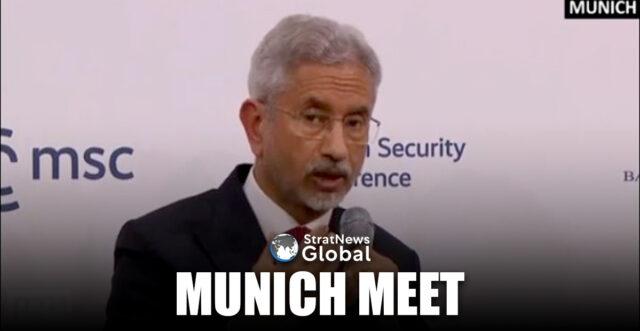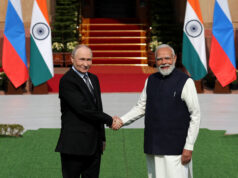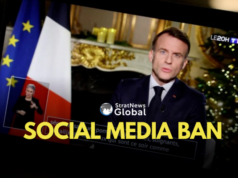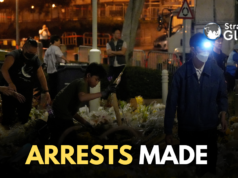The 61st Munich Security Conference (MSC) 2025 which ended on Sunday brought together world leaders, policymakers, and security experts to discuss the rapidly shifting global order
Key themes included the war in Ukraine, U.S.-Europe tensions, China’s growing absence from Western forums, and India’s evolving role in international politics, especially in light of its efforts to position itself as a leader of the Global South. The MSC’s report, “Modi-fied Status,” acknowledged India’s rising global stature while highlighting challenges to its regional relevance and security.
The three-day conference also underlined the deepening multipolarity of global power and the increasing challenges to traditional alliances.
One of the most consequential announcements was the initiation of U.S.-Russia peace talks aimed at resolving the ongoing war in Ukraine. U.S. President Donald Trump and Russian President Vladimir Putin are set to engage in direct negotiations, a move that has sparked concern among European leaders, who were left out of the process.
Finnish President Alexander Stubb cautioned against a modern-day Yalta Agreement, where major powers dictate terms without the inclusion of affected nations. Stubb and other European leaders emphasized that Europe must continue to provide military support and security to Ukraine to ensure negotiations occur from a position of strength.
Meanwhile, Ukrainian President Volodymyr Zelenskyy warned against over-reliance on Washington and urged European nations to take a more proactive role in their own security, But his proposal for the formation of a European security force dedicated to supporting Ukraine received mixed reactions from EU leaders.
Clearly rattled over being sidelined from the U.S.-Russia talks, European leaders convened an emergency meeting in Paris Monday, spearheaded by French President Emmanuel Macron and German Chancellor Olaf Scholz. Macron renewed calls for a stronger European defence strategy, advocating for increased military investments and greater independence from NATO.
Germany, France, and other EU members reiterated the importance of securing Europe’s strategic interests amid growing uncertainty over U.S. commitments to transatlantic security.
Adding to the tension between the U.S. and Europe, U.S. Vice President JD Vance delivered a controversial speech criticizing what he described as the erosion of democratic freedoms in Europe. He accused European governments of imposing restrictions on free speech and religious expression, drawing a sharp response from European officials.
German Chancellor Scholz dismissed these claims, reaffirming Europe’s commitment to democratic values and human rights. Other European leaders saw Vance’s remarks as an attempt to deepen divisions at a time when transatlantic unity was already strained by the Ukraine crisis.
China’s decision not to send senior representatives to the MSC signalled an increasing divide between Western powers and Beijing. Despite this absence, China’s global ambitions remained a major topic of discussion.
Western policymakers expressed concern over China’s growing economic and military influence, particularly in Africa, the Indian Ocean, and South Asia. Many saw Beijing’s championing of a multipolar world order as a strategic manoeuvre to challenge U.S. hegemony, rather than a genuine effort to foster balanced global governance.
New Delhi, meanwhile, has actively sought to expand its influence on the global stage through leadership in multilateral forums like the G20 and strategic partnerships with both Western nations and emerging economies.
However, the report noted that despite these efforts, India is gradually losing regional influence. China’s expanding economic and military presence in South Asia has overshadowed India’s traditional role in the region, with Beijing deepening ties with Sri Lanka, Nepal, and the Maldives through its Belt and Road Initiative.
During a panel discussion on “Fortifying Democratic Resilience,” India’s External Affairs Minister S. Jaishankar offered a strong counterpoint to Western concerns about democratic backsliding. While many panelists voiced apprehensions about the global decline of democracy, Jaishankar presented India as a thriving counterexample.
He highlighted India’s recent elections, where nearly 700 million out of 900 million eligible voters participated, showcasing the vibrancy of the country’s democratic process.
Emphasizing efficiency, he noted that India counts votes in a single day, underscoring the robustness of its electoral system. His remarks contrasted sharply with the pessimistic outlook shared by other speakers, reinforcing India’s narrative as the world’s largest democracy.
Despite this strong defence, the MSC report pointed to domestic challenges that could hinder India’s long-term ambitions. Structural economic weaknesses, increasing political polarization, and concerns over declining pluralism were identified as potential risks to India’s global standing.
Moreover, India’s policy of multi-alignment—maintaining ties with both Western powers and Russia—has led to scepticism about its willingness to take decisive stances on major security issues.
The conference report highlighted that while multipolarity presents opportunities for more inclusive governance, it also heightens the risk of fragmentation and disorder.
India, despite its growing international influence, faces mounting challenges in maintaining regional dominance. China’s strategic manoeuvres, Russia’s persistence in shaping a civilizational world order, and the U.S.-led push for ideological alignment all add layers of complexity to the evolving geopolitical security landscape.
For India, the conference highlighted both its global ambitions and the hurdles it faces in maintaining regional influence. While Jaishankar defended India’s democratic credentials, the broader strategic reality suggests that New Delhi must navigate an increasingly complex international environment, the MSC report said.
So far, New Delhi has displayed its ability to do so better than most other nations –developed and developing– grappling with similar issues.
In a career spanning three decades and counting, Ramananda (Ram to his friends) has been the foreign editor of The Telegraph, Outlook Magazine and the New Indian Express. He helped set up rediff.com’s editorial operations in San Jose and New York, helmed sify.com, and was the founder editor of India.com.
His work has featured in national and international publications like the Al Jazeera Centre for Studies, Global Times and Ashahi Shimbun. But his one constant over all these years, he says, has been the attempt to understand rising India’s place in the world.
He can rustle up a mean salad, his oil-less pepper chicken is to die for, and all it takes is some beer and rhythm and blues to rock his soul.
Talk to him about foreign and strategic affairs, media, South Asia, China, and of course India.





